Bodies without Organs in the Gospel of Mark
Published: Aug 2022
£50.00
In this stimulating monograph, Villalobos Mendoza leads the diligent reader to a re-appreciation of Mark’s Jesus as an enabler of human freedom. The freedom that ought to be every human’s birthright is, we know, everywhere constrained by custom, regulation and law. But for the Jesus of Mark, order itself is disruptive, boundaries are transgressed, hierarchies are dismantled, and the bodies of humans, animals and trees are interconnected.
Villalobos Mendoza—taking his theoretical inspiration from the philosopher Gilles Deleuze—proposes Mark’s Jesus as the first figure to accomplish the ‘Body without Organs’ (BwO), the one who frees us from the oppression of the priest / institution / power / hierarchy. According to Deleuze, ‘the body is the body / it is all by itself / and has no need of organs / the body is never an organism / organisms are the enemies of the body’. This notion is helpful for understanding Jesus as the BwO, how Jesus’ body affects other bodies, and how those bodies function (or assemble) as an interkingdom of no-bodies.
The analysis of several Markan texts (Mk. 3.20- 35; 6.1-6; 1.12-13; 13.32-35; 14.27; 11.12-14; 14.51-52; 15.42-47; 16.1-8), is done through the interpretative lens of Deleuze and Félix Guattari whose co-authored works deliberately self-create new philosophical constructs, alongside BwO, such as: ‘any-space-whatever’, ‘de-re-territorialization’, ‘assemblage’, ‘rhizome’, ‘threes’, ‘Becoming(s)’, ‘interkingdoms’, ‘affects’, ‘people-yet-to-come’, ‘nomadism’, ‘eternal return’, ‘repetition’. By putting into dialogue insights from Deleuze and the Markan Jesus’ understanding of the kingdom of God, Villalobos Mendoza suggests the character of Jesus as the exemplary opponent of the apparatus of state which: organized, signified, subdued and subjected the human as well as the nonhuman ‘body’. This representation of Jesus creates a new interplay with the riddle of Deleuzean thought that argues that God and the judgement of God are the eternal enemy of the BwO!
Bodies without Organs in the Gospel of Mark
£50.00
In this stimulating monograph, Villalobos Mendoza leads the diligent reader to a re-appreciation of Mark’s Jesus as an enabler of human freedom. The freedom that ought to be every human’s birthright is, we know, everywhere constrained by custom, regulation and law. But for the Jesus of Mark, order itself is disruptive, boundaries are transgressed, hierarchies are dismantled, and the bodies of humans, animals and trees are interconnected.
Villalobos Mendoza—taking his theoretical inspiration from the philosopher Gilles Deleuze—proposes Mark’s Jesus as the first figure to accomplish the ‘Body without Organs’ (BwO), the one who frees us from the oppression of the priest / institution / power / hierarchy. According to Deleuze, ‘the body is the body / it is all by itself / and has no need of organs / the body is never an organism / organisms are the enemies of the body’. This notion is helpful for understanding Jesus as the BwO, how Jesus’ body affects other bodies, and how those bodies function (or assemble) as an interkingdom of no-bodies.
The analysis of several Markan texts (Mk. 3.20- 35; 6.1-6; 1.12-13; 13.32-35; 14.27; 11.12-14; 14.51-52; 15.42-47; 16.1-8), is done through the interpretative lens of Deleuze and Félix Guattari whose co-authored works deliberately self-create new philosophical constructs, alongside BwO, such as: ‘any-space-whatever’, ‘de-re-territorialization’, ‘assemblage’, ‘rhizome’, ‘threes’, ‘Becoming(s)’, ‘interkingdoms’, ‘affects’, ‘people-yet-to-come’, ‘nomadism’, ‘eternal return’, ‘repetition’. By putting into dialogue insights from Deleuze and the Markan Jesus’ understanding of the kingdom of God, Villalobos Mendoza suggests the character of Jesus as the exemplary opponent of the apparatus of state which: organized, signified, subdued and subjected the human as well as the nonhuman ‘body’. This representation of Jesus creates a new interplay with the riddle of Deleuzean thought that argues that God and the judgement of God are the eternal enemy of the BwO!
Tales of Posthumanity: The Bible and Contemporary Popular Culture
Published: Oct 2014
£50.00
Images and concepts of the ‘posthuman’ go back at least as far as the famous ‘madman parable’ in F. Nietzsche’s The Gay Science, and their ‘roots’ go back much further still. In turn, the image or theme of the posthuman has played an increasingly important role in recent literature, film, and television, where the notion of humanity as a ‘larval being’ (G. Deleuze) that transforms itself or is being transformed into something else, for better or worse, has become increasingly common.
This book explores these concepts in relation to biblical texts, particularly texts from the gospel of Mark but also from the books of Daniel, Jonah and Qoheleth (Ecclesiastes), and the Acts of the Apostles. At the same time, texts from recent popular culture are examined, including novels by J. Morrow, C. Miéville and G. Ryman, the movies Local Hero and Lars and the Real Girl, and the Heroes TV series among others.
Through a kind of inverted causality, recent texts in various media such as these transform earlier and otherwise unrelated ones, including biblical texts, into precursors, giving them new, postmodern meanings, just as the older texts once signified in still other ways before the advent of the familiar modern world. As a result, biblical texts signify in remarkably different ways in relation to the posthuman. Posthuman beings appear in both biblical and non-biblical texts, and the biblical phrase ‘sons of men’ (in both plural and singular versions) plays a crucial role, where it too takes on meanings that range far beyond the conventional or traditional ones.
Tales of Posthumanity: The Bible and Contemporary Popular Culture
£50.00
Images and concepts of the ‘posthuman’ go back at least as far as the famous ‘madman parable’ in F. Nietzsche’s The Gay Science, and their ‘roots’ go back much further still. In turn, the image or theme of the posthuman has played an increasingly important role in recent literature, film, and television, where the notion of humanity as a ‘larval being’ (G. Deleuze) that transforms itself or is being transformed into something else, for better or worse, has become increasingly common.
This book explores these concepts in relation to biblical texts, particularly texts from the gospel of Mark but also from the books of Daniel, Jonah and Qoheleth (Ecclesiastes), and the Acts of the Apostles. At the same time, texts from recent popular culture are examined, including novels by J. Morrow, C. Miéville and G. Ryman, the movies Local Hero and Lars and the Real Girl, and the Heroes TV series among others.
Through a kind of inverted causality, recent texts in various media such as these transform earlier and otherwise unrelated ones, including biblical texts, into precursors, giving them new, postmodern meanings, just as the older texts once signified in still other ways before the advent of the familiar modern world. As a result, biblical texts signify in remarkably different ways in relation to the posthuman. Posthuman beings appear in both biblical and non-biblical texts, and the biblical phrase ‘sons of men’ (in both plural and singular versions) plays a crucial role, where it too takes on meanings that range far beyond the conventional or traditional ones.
Between Author and Audience in Mark: Narration, Characterization, Interpretation
Published: May 2013
£16.50 – £45.00
To hear, read, and interpret the Gospel of Mark is to become involved in the dynamic relationship between author (real or implied) and audience (implied or real). So we have learned from the 'literary turn' in biblical interpretation. But there remains another dynamic relationship in which we are of necessity involved: that of the literary and the historical questions surrounding the text. Clearly, multiple approaches are called for by anyone who wishes to claim a place in the on-going audience of the Gospel of Mark.
The first three essays in this volume move in different ways between real and implied Markan realities: from implied audience to real (ancient) audience, from real (contemporary, oral) narrator to implied (ancient, oral) narrator, and from implied audience to various real (or 'unimplied') audiences. The next three essays treat the central Markan reality of parable as it connects author, narrator, and audience in challenging ways. The final three essays concern the relation of Mark's characters among themselves or the relation of narrator and character, recognizing the complexity of characterization in the Gospel as a form of communication between author and audience.
Between Author and Audience in Mark: Narration, Characterization, Interpretation
£16.50 – £45.00
To hear, read, and interpret the Gospel of Mark is to become involved in the dynamic relationship between author (real or implied) and audience (implied or real). So we have learned from the 'literary turn' in biblical interpretation. But there remains another dynamic relationship in which we are of necessity involved: that of the literary and the historical questions surrounding the text. Clearly, multiple approaches are called for by anyone who wishes to claim a place in the on-going audience of the Gospel of Mark.
The first three essays in this volume move in different ways between real and implied Markan realities: from implied audience to real (ancient) audience, from real (contemporary, oral) narrator to implied (ancient, oral) narrator, and from implied audience to various real (or 'unimplied') audiences. The next three essays treat the central Markan reality of parable as it connects author, narrator, and audience in challenging ways. The final three essays concern the relation of Mark's characters among themselves or the relation of narrator and character, recognizing the complexity of characterization in the Gospel as a form of communication between author and audience.
Abject Bodies in the Gospel of Mark
Published: July 2012
£22.50 – £50.00
Basing himself on Judith Butler’s notion of gender, abjectness, vulnerability, and the precariousness of the human body, Manuel Villalobos offers a compelling study of a number of characters in Mark’s passion narrative whom he finds to be transgressing boundaries and disrupting their assigned gender roles. He then applies the same methodology to Jesus, queering the Markan passion narrative, and concludes that because it was subject to all kinds of physical abuses Jesus’ body is the way by which God becomes identified and fully implicated in the life of those who live at the margins of society.
The whole book, exegetically rich and imaginative, is grounded on a hermeneutic which Villalobos terms Del otro lado / from the other side, because it celebrates the kind of ambiguity produced by gender, racial, cultural, and ethnic otherness, interweaving (often harrowing) tales of village life in Mexico with interpretations of specific Markan episodes. In so doing he hopes to initiate a dialogue between the Northern and the Southern hemispheres, a dialogue that crosses the boundaries that separate and exclude people because of economic and legal statuses and, specially, sexual orientation. The end product is a fresh and totally destabilizing reading that accomplishes the difficult task of bringing to the fore those voices neglected by the history of the interpretation of the text.
Abject Bodies in the Gospel of Mark
£22.50 – £50.00
Basing himself on Judith Butler’s notion of gender, abjectness, vulnerability, and the precariousness of the human body, Manuel Villalobos offers a compelling study of a number of characters in Mark’s passion narrative whom he finds to be transgressing boundaries and disrupting their assigned gender roles. He then applies the same methodology to Jesus, queering the Markan passion narrative, and concludes that because it was subject to all kinds of physical abuses Jesus’ body is the way by which God becomes identified and fully implicated in the life of those who live at the margins of society.
The whole book, exegetically rich and imaginative, is grounded on a hermeneutic which Villalobos terms Del otro lado / from the other side, because it celebrates the kind of ambiguity produced by gender, racial, cultural, and ethnic otherness, interweaving (often harrowing) tales of village life in Mexico with interpretations of specific Markan episodes. In so doing he hopes to initiate a dialogue between the Northern and the Southern hemispheres, a dialogue that crosses the boundaries that separate and exclude people because of economic and legal statuses and, specially, sexual orientation. The end product is a fresh and totally destabilizing reading that accomplishes the difficult task of bringing to the fore those voices neglected by the history of the interpretation of the text.
Reconfiguring Mark’s Jesus: Narrative Criticism After Poststructuralism
Published: Oct 2011
£60.00
As readers, we are captivated by the resemblance of literary characters to actual persons. But it is precisely this illusion that allows characterization to play host to dominant ideologies of both 'literature' and 'the self'. This is especially true when we confuse narrative figures and historical persons.
Over the last thirty years, New Testament narrative criticism has developed into a major methodological approach in Biblical Studies. But for all its ingenuity and promise, it has been reluctant to let go of conventional historical-critical moorings. As a result, one is hard pressed to find any substantive difference between reconstructions of the historical Jesus and narrative-critical readings of the character Jesus.
Reconfiguring Mark's Jesus endeavors to reorient and advance narrative criticism by analysing the Gospel of Mark's characterization of the figure of Jesus in relation to three other fundamental aspects of narrative discourse: focalization, dialogue, and plot. This intertextual reading, in which Mark is set alongside two ancient novels — Leucippe and Clitophon and the Life of Aesop —problematizes implicitly modern notions of literary characters as autonomous 'agents', as well as 'naturalizing' treatments of literary characters as historical referents. Highlighting the inherent ambiguity of narrative discourse, particularly with regard to referentiality, human agency, and the complex relationship between literature and history, Reconfiguring Mark's Jesus illustrates the diverse and complex ways that narratives, of necessity, produce fragmented characters that refract the inherent paradoxes of narrative itself and of human subjectivity.
Reconfiguring Mark’s Jesus: Narrative Criticism After Poststructuralism
£60.00
As readers, we are captivated by the resemblance of literary characters to actual persons. But it is precisely this illusion that allows characterization to play host to dominant ideologies of both 'literature' and 'the self'. This is especially true when we confuse narrative figures and historical persons.
Over the last thirty years, New Testament narrative criticism has developed into a major methodological approach in Biblical Studies. But for all its ingenuity and promise, it has been reluctant to let go of conventional historical-critical moorings. As a result, one is hard pressed to find any substantive difference between reconstructions of the historical Jesus and narrative-critical readings of the character Jesus.
Reconfiguring Mark's Jesus endeavors to reorient and advance narrative criticism by analysing the Gospel of Mark's characterization of the figure of Jesus in relation to three other fundamental aspects of narrative discourse: focalization, dialogue, and plot. This intertextual reading, in which Mark is set alongside two ancient novels — Leucippe and Clitophon and the Life of Aesop —problematizes implicitly modern notions of literary characters as autonomous 'agents', as well as 'naturalizing' treatments of literary characters as historical referents. Highlighting the inherent ambiguity of narrative discourse, particularly with regard to referentiality, human agency, and the complex relationship between literature and history, Reconfiguring Mark's Jesus illustrates the diverse and complex ways that narratives, of necessity, produce fragmented characters that refract the inherent paradoxes of narrative itself and of human subjectivity.
Mark, Women and Empire: A Korean Postcolonial Perspective
Published: Mar 2010
£45.00
As Mark's Gospel moves toward its climax, four stories of women challenge Jesus in his mission to establish the empire of God against the backdrop of the Roman Empire: those of the poor widow (12.41-44), the anointing woman (14.1-11), the women at the cross and the burial (15.40-41, 47), and the women at the empty tomb (16.1-8). They are stories that would seem to demand both a feminist and a postcolonial perspective on the part of their readers —yet Kim's is the first reading of the Gospel that has taken an explicitly postcolonial feminist stance.
In addition to the feminist and the postcolonial themes, the third strand in Seong Hee Kim's approach arises from her Korean context, which provides her with the concept of Salim interpretation, that is, 'making things alive'. Starting from the reader's context, she develops a Salim hermeneutics for each of the four stories by engaging in a dialogue between the biblical story and the reader's use of her or his own imagination. The goal of her interpretation is such a making things alive, a mending of broken things, and an opening up of meaning —in contrast to the tendency of historical criticism, which has striven to identify a single, correct meaning in the biblical text.
Mark, Women and Empire: A Korean Postcolonial Perspective
£45.00
As Mark's Gospel moves toward its climax, four stories of women challenge Jesus in his mission to establish the empire of God against the backdrop of the Roman Empire: those of the poor widow (12.41-44), the anointing woman (14.1-11), the women at the cross and the burial (15.40-41, 47), and the women at the empty tomb (16.1-8). They are stories that would seem to demand both a feminist and a postcolonial perspective on the part of their readers —yet Kim's is the first reading of the Gospel that has taken an explicitly postcolonial feminist stance.
In addition to the feminist and the postcolonial themes, the third strand in Seong Hee Kim's approach arises from her Korean context, which provides her with the concept of Salim interpretation, that is, 'making things alive'. Starting from the reader's context, she develops a Salim hermeneutics for each of the four stories by engaging in a dialogue between the biblical story and the reader's use of her or his own imagination. The goal of her interpretation is such a making things alive, a mending of broken things, and an opening up of meaning —in contrast to the tendency of historical criticism, which has striven to identify a single, correct meaning in the biblical text.
Marxist Feminist Criticism of the Bible
Published: Jun 2008
£40.00
This volume seeks to spur a lively discussion on Marxist feminist analysis of biblical texts. Marxism and feminism have many mutual concerns, and the combination of the two has become common in literary criticism, cultural studies, sociology and philosophy. So it is high time for biblical studies to become interested.
This collection is the first of its kind in biblical studies, bringing together a mixture of newer and more mature voices. It falls into three sections: general concerns (Milena Kirova, Tamara Prosic and David Jobling); Hebrew Bible (Gale Yee and Avaren Ipsen); New Testament (Alan Cadwallader, Jorunn Økland, Roland Boer and Jennifer Bird).
Thought-provoking and daring, the collection includes: the history of Marxist feminist analysis, the work of Bertolt Brecht, the voices of prostitute collectives, and the possibilities for biblical criticism of the work of Rosemary Hennessy, Simone de Beauvoir, Juliet Mitchell, Wilhelm Reich and Julia Kristeva. All of which are brought to bear on biblical texts such as Proverbs, 1 Kings, Mark, Paul's Letters, and 1 Peter.
Marxist Feminist Criticism of the Bible
£40.00
This volume seeks to spur a lively discussion on Marxist feminist analysis of biblical texts. Marxism and feminism have many mutual concerns, and the combination of the two has become common in literary criticism, cultural studies, sociology and philosophy. So it is high time for biblical studies to become interested.
This collection is the first of its kind in biblical studies, bringing together a mixture of newer and more mature voices. It falls into three sections: general concerns (Milena Kirova, Tamara Prosic and David Jobling); Hebrew Bible (Gale Yee and Avaren Ipsen); New Testament (Alan Cadwallader, Jorunn Økland, Roland Boer and Jennifer Bird).
Thought-provoking and daring, the collection includes: the history of Marxist feminist analysis, the work of Bertolt Brecht, the voices of prostitute collectives, and the possibilities for biblical criticism of the work of Rosemary Hennessy, Simone de Beauvoir, Juliet Mitchell, Wilhelm Reich and Julia Kristeva. All of which are brought to bear on biblical texts such as Proverbs, 1 Kings, Mark, Paul's Letters, and 1 Peter.
Empire and Apocalypse: Postcolonialism and the New Testament
Published: Oct 2006
£18.50 – £37.00
In Empire and Apocalypse Stephen Moore offers us the most complete introduction yet to the emergent field of postcolonial biblical criticism. It includes an indispensable in-depth introduction to postcolonial theory and criticism together with a detailed survey of postcolonial biblical criticism.
Next come three substantial exegetical chapters on the Gospels of Mark and John and the Book of Revelation, which together demonstrate how postcolonial studies provide fresh conceptual resources and critical strategies for rethinking early Christianity's complex relations to the Roman Empire. Each of these three texts, to different degrees, Moore argues, mimic and replicate fundamental facets of Roman imperial ideology even while resisting and eroding it.
The book concludes with an amply annotated bibliography whose main section provides a comprehensive listing of work done to date in postcolonial biblical criticism.
Empire and Apocalypse: Postcolonialism and the New Testament
£18.50 – £37.00
In Empire and Apocalypse Stephen Moore offers us the most complete introduction yet to the emergent field of postcolonial biblical criticism. It includes an indispensable in-depth introduction to postcolonial theory and criticism together with a detailed survey of postcolonial biblical criticism.
Next come three substantial exegetical chapters on the Gospels of Mark and John and the Book of Revelation, which together demonstrate how postcolonial studies provide fresh conceptual resources and critical strategies for rethinking early Christianity's complex relations to the Roman Empire. Each of these three texts, to different degrees, Moore argues, mimic and replicate fundamental facets of Roman imperial ideology even while resisting and eroding it.
The book concludes with an amply annotated bibliography whose main section provides a comprehensive listing of work done to date in postcolonial biblical criticism.
Entertaining Angels: Early Christian Hospitality in Its Mediterranean Setting
Published: Jan 2005
£55.00
Hospitality in the ancient Mediterranean world was not a matter of entertaining one's neighbours to dinner. And among the early Christians it was not the same as table-fellowship either, though most modern works confuse that with hospitality. Hospitality was essentially the provision of food and protection for travellers; it could include also a bath, supplies for the traveller's onward journey, and an escort along the road toward to the traveller's next destination.
Unlike other writers, Arterbury combs through a broad spectrum of Greek, Roman and Jewish texts -- as well as early Christian texts outside the New Testament -- for literary depictions of the custom of hospitality. As well, he brings into the picture the Greek novels, which provide us with vivid insights into ancient Mediterranean life. His book presents the most complete analysis of the terms used for hospitality. And he shows how important the practice of hospitality is in understanding the narrative of the conversion of the Gentile Cornelius in Acts 10-11: Luke is here suggesting that Christian communities should employ the traditional custom of hospitality as an effective means of bridging the cultural divide between Jews and Gentiles, evangelizing unbelievers, and forging bonds of friendship with strangers.
This revealing and engaging example of what Arterbury describes as 'historical audience-oriented criticism' will be appreciated by scholars and students interested in the reality of life in New Testament times.
Entertaining Angels: Early Christian Hospitality in Its Mediterranean Setting
£55.00
Hospitality in the ancient Mediterranean world was not a matter of entertaining one's neighbours to dinner. And among the early Christians it was not the same as table-fellowship either, though most modern works confuse that with hospitality. Hospitality was essentially the provision of food and protection for travellers; it could include also a bath, supplies for the traveller's onward journey, and an escort along the road toward to the traveller's next destination.
Unlike other writers, Arterbury combs through a broad spectrum of Greek, Roman and Jewish texts -- as well as early Christian texts outside the New Testament -- for literary depictions of the custom of hospitality. As well, he brings into the picture the Greek novels, which provide us with vivid insights into ancient Mediterranean life. His book presents the most complete analysis of the terms used for hospitality. And he shows how important the practice of hospitality is in understanding the narrative of the conversion of the Gentile Cornelius in Acts 10-11: Luke is here suggesting that Christian communities should employ the traditional custom of hospitality as an effective means of bridging the cultural divide between Jews and Gentiles, evangelizing unbelievers, and forging bonds of friendship with strangers.
This revealing and engaging example of what Arterbury describes as 'historical audience-oriented criticism' will be appreciated by scholars and students interested in the reality of life in New Testament times.
The Birthing of the New Testament: The Intertextual Development of the New Testament Writings
Published: Nov 2004
£22.50
Many are saying that the prevailing paradigm of New Testament origins is going nowhere. In its place, Brodie’s stunning book invites us to suspend all ‘knowledge’ we already have about the history of the New Testament’s development, and to be willing to entertain the following thesis.
Everything hinges on Proto-Luke, a history of Jesus using the Elijah–Elisha narrative as its model, which survives in 10 chapters of Luke and 15 of Acts. Mark then uses Proto-Luke, transposing its Acts material back into the life of Jesus. Matthew deuteronomizes Mark, John improves on the discourses of Matthew. Luke–Acts spells out the story at length. Add the Pauline corpus, the descendant of Deuteronomy via the Matthean logia, and the New Testament is virtually complete.
This is a totalizing theory, an explanation of everything, and its critics will be numerous. But even they will be hugely intrigued, and have to admit that Brodie’s myriads of challenging observations about literary affinities demand an answer.
The Birthing of the New Testament: The Intertextual Development of the New Testament Writings
£22.50
Many are saying that the prevailing paradigm of New Testament origins is going nowhere. In its place, Brodie’s stunning book invites us to suspend all ‘knowledge’ we already have about the history of the New Testament’s development, and to be willing to entertain the following thesis.
Everything hinges on Proto-Luke, a history of Jesus using the Elijah–Elisha narrative as its model, which survives in 10 chapters of Luke and 15 of Acts. Mark then uses Proto-Luke, transposing its Acts material back into the life of Jesus. Matthew deuteronomizes Mark, John improves on the discourses of Matthew. Luke–Acts spells out the story at length. Add the Pauline corpus, the descendant of Deuteronomy via the Matthean logia, and the New Testament is virtually complete.
This is a totalizing theory, an explanation of everything, and its critics will be numerous. But even they will be hugely intrigued, and have to admit that Brodie’s myriads of challenging observations about literary affinities demand an answer.

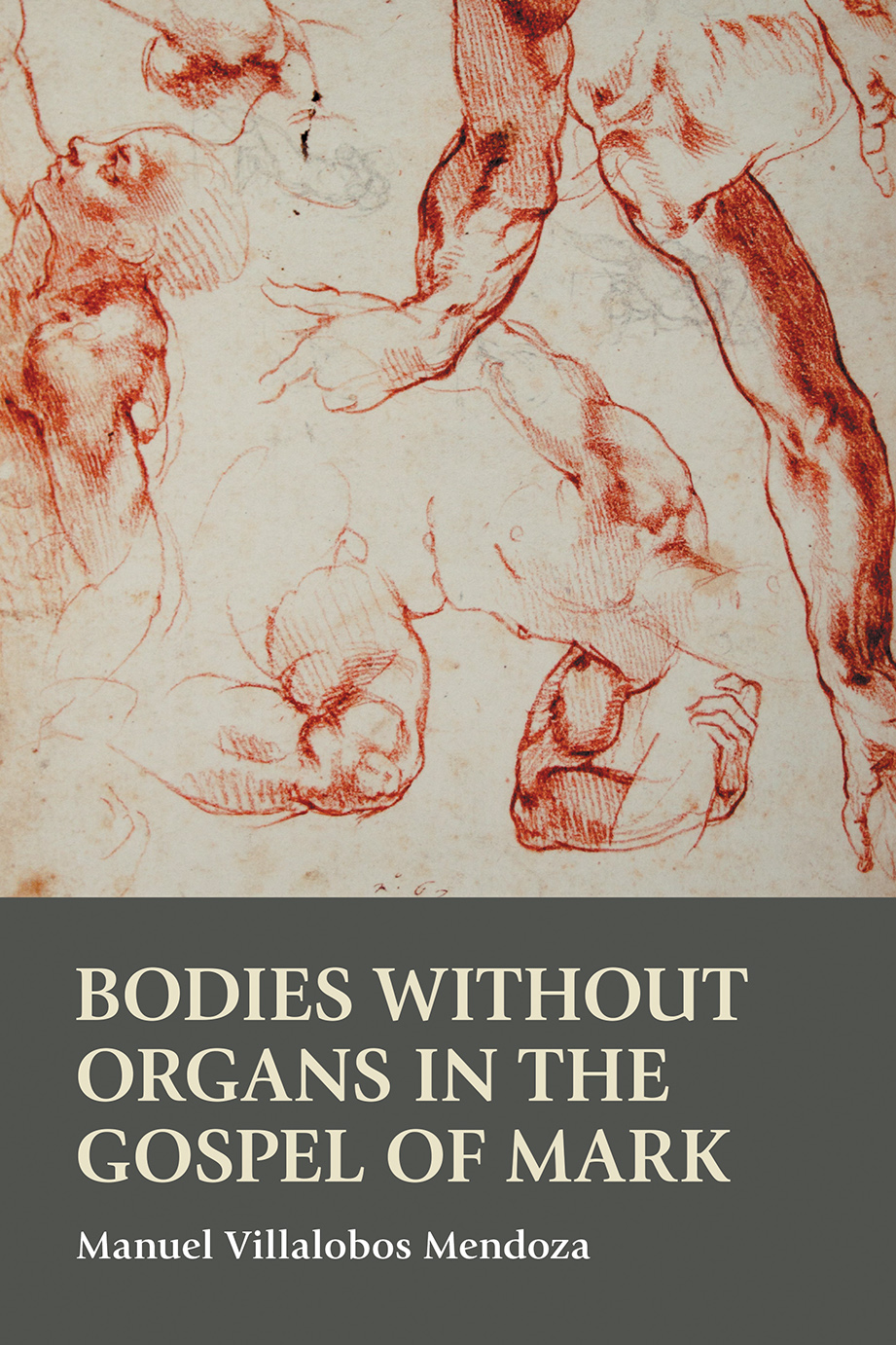
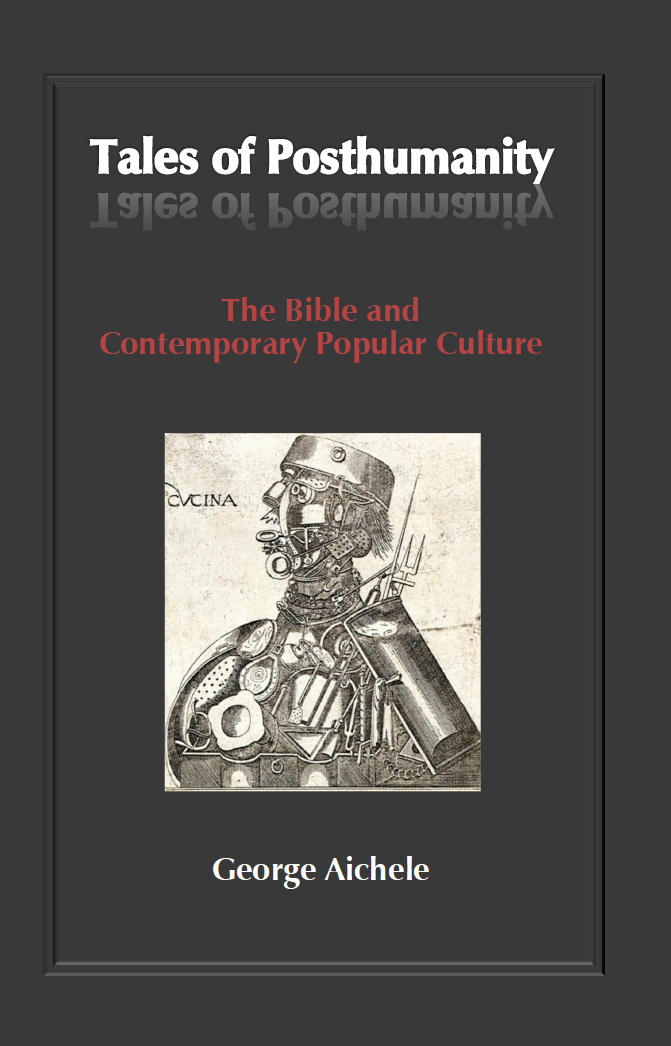
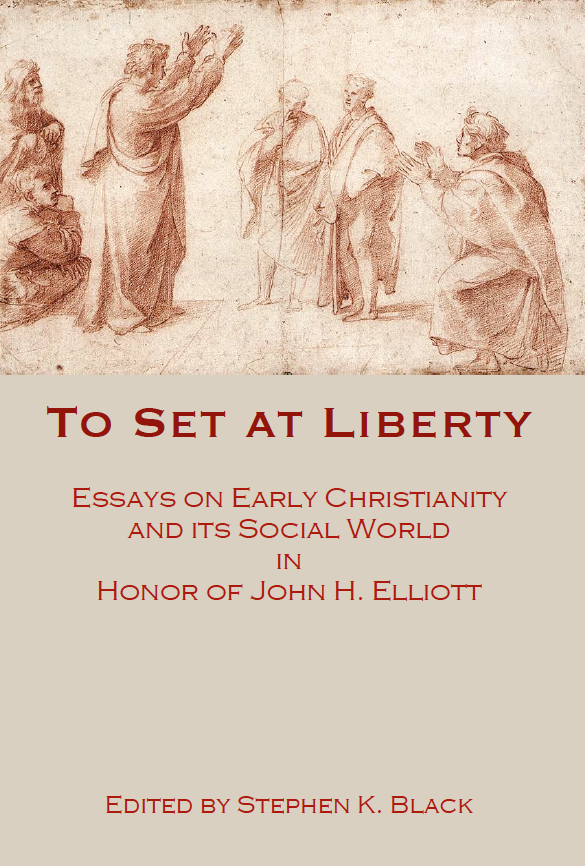




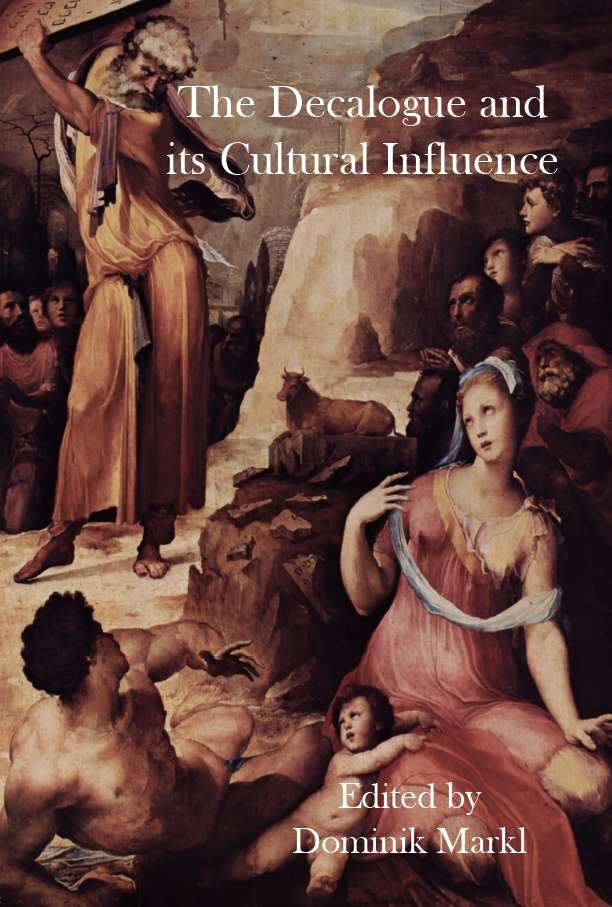
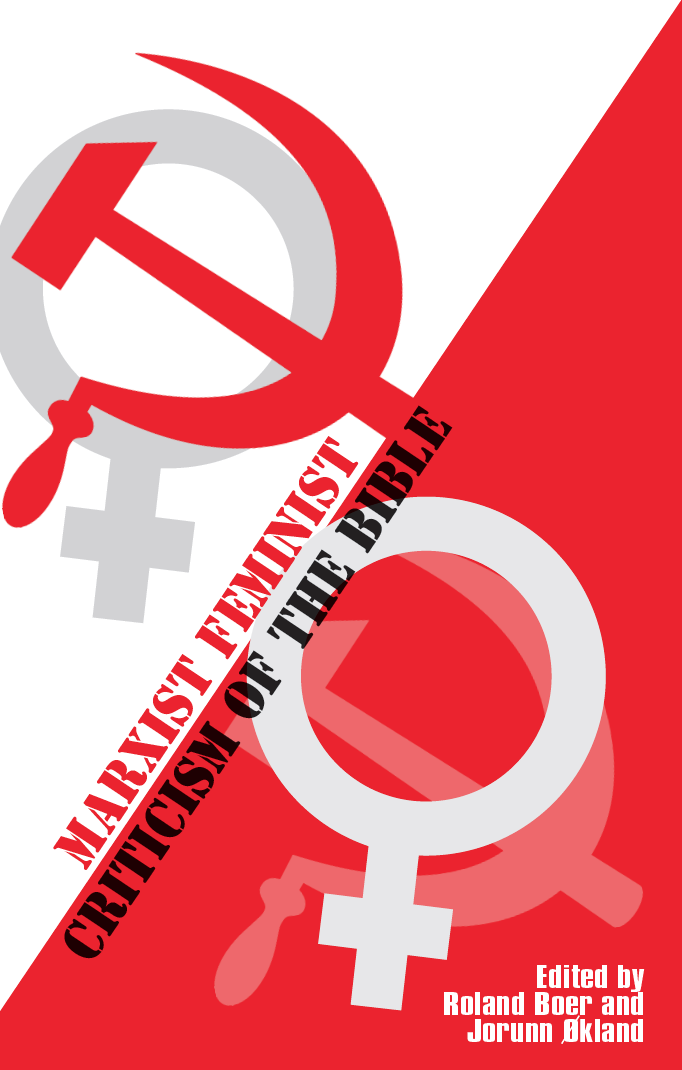



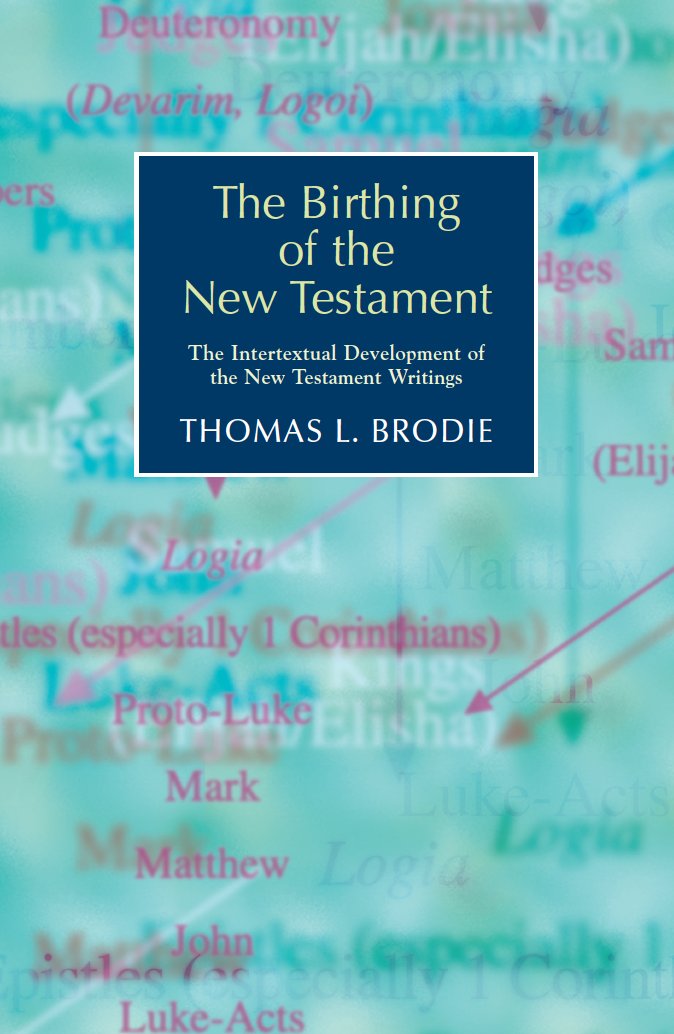
Mark, Second Edition
Mark, Second Edition